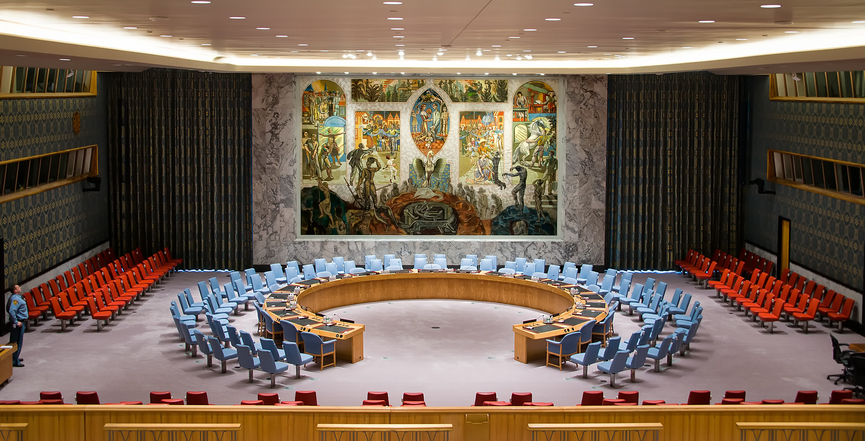Hand-wringing and recriminations have followed Canada’s failure to secure one of two highly-coveted seats on the UN Security Council. The decisive defeat came after the Trudeau government spent $2.3 million promoting its candidacy. Its message: after the international indifference of the Harper years, a kinder, more caring Canada was back.
But the UN’s voting members delivered a stinging rebuke, electing Ireland and Norway instead. Canada’s lofty diplomatic ambitions could not have been helped by its unstinting support for critical U.S. nuclear arms policies, including Trump’s ham-fisted attempt to thwart the Treaty on the Prohibition of Nuclear Weapons.
TPNW’s goal is the elimination of all nuclear arms. It is the most important international weapons treaty of our time. But TPNW’s importance is underscored by more than its ambition.
It arrives at a crucial juncture when the Trump administration has withdrawn from — or all but torn up — three critical nuclear arms agreements in the past three years: the Iran nuclear deal in 2018; the Intermediate Range Nuclear Forces Treaty (INF) in 2019, which was originally signed by president Ronald Reagan and Soviet leader Mikhail Gorbachev; and the Treaty on Open Skies in 2020.
TPNW has the support of 135 nations, two-thirds of the world’s countries, according to the Nobel Peace Prize-winning International Campaign to Abolish Nuclear Weapons. But Canada bucked growing world opinion, choosing to remain a stalwart backer of U.S. belligerence, which left our country in the prickly embrace of the world’s nine nuclear-armed nations and the NATO members that permit U.S. nuclear weapons to be sited on their soil.
Despite the peace-loving spin Ottawa’s representatives promoted during their UN PR campaign for a Security Council seat, Canada’s willingness to back U.S. nuclear weapons policy is long established and includes its ongoing support for the potential use of nuclear weapons on Canada’s behalf.
Marching in lockstep with major aspects of U.S. nuclear weapons policy could not have augured well for Canada’s ambitions at the UN. Neither could its notorious treatment of Indigenous peoples.
In the midst of the Security Council campaign, a video went viral showing an RCMP officer aiming a sniper rifle at peaceful Wet’suwet’en land defenders trying to stop a natural gas pipeline from crossing their unceded territory. One picture really can be worth a thousand words — when they ring as hollow as Canada’s pronouncements on behalf of the world’s Indigenous peoples.
Canada’s environmental racism was headlined further with the bizarre timing of the government’s declaration of a national climate emergency — the day before the prime minister announced the purchase of the Trans Mountain pipeline (TMX). Or does Trudeau, an educator turned PM, fail to understand the political pitfalls of biting irony?
While Ottawa appeared oblivious, most nations at the UN grasped the planet-be-damned implications of TMX as easily as the lethal implications of current nuclear stockpiles. The pipeline would transport the world’s filthiest oil across ancestral Indigenous lands to the shores of the biologically lush Salish Sea, one of the world’s cleanest waterways, for tanker transport to Asian markets.
When you’re running for a seat on the Security Council, full-frontal hypocrisy is hard to hide.
That was also apparent with the Trudeau government’s inertia on UNDRIP, the United Nations Declaration on the Rights of Indigenous Peoples, which enshrines rights that “constitute the minimum standards for the survival, dignity, and well-being of the Indigenous peoples of the world.” That was too much for the U.S., which loudly opposes UNDRIP — and too much for Canada.
While Trudeau said he supports UNDRIP, there’s been minimal push by the federal government to adopt it. Only British Columbia has taken that step, leaving the UN’s declaration to wallow in the backwaters of Liberal party concerns.
Canada’s continued compliance with dangerous U.S. policies is prompting Extinction Rebellion Victoria to call for environmental campaigners to press the federal government to defund the military and and support the TPNW, as so many of us have supported Indigenous demands for sovereignty.
Even in the midst of the pandemic, XR chapters worldwide are engaged in attempts to stop the pathological priorities of fossil fuels states — but nothing will heat up the planet faster in the short run than a nuclear conflagration. That’s why the proliferation of nuclear arms must become a critical part of our ongoing campaign, one that would surely meet with greater agreement at the UN than Trudeau’s hapless efforts.
When asked about one of Trump’s latest outrages, the prime minister offered an infamous 21-second pause. By his continued acquiescence to the U.S. on the key nuclear weapons issues of our time, Trudeau might as well have offered “Cadet Bone Spurs” a 21-gun salute.
Mark Nykanen is an organizer for Extinction Rebellion Victoria and a four-time national Emmy Award-winning investigative reporter and author whose last three novels have focused on the climate emergency.
Howard Breen is a co-founder of Extinction Rebellion Victoria and a long-time environmental and anti-war activist whose international efforts have taken him to frontline struggles in the Middle East and Latin America.
Image: Russ Allison Loar/Flickr



